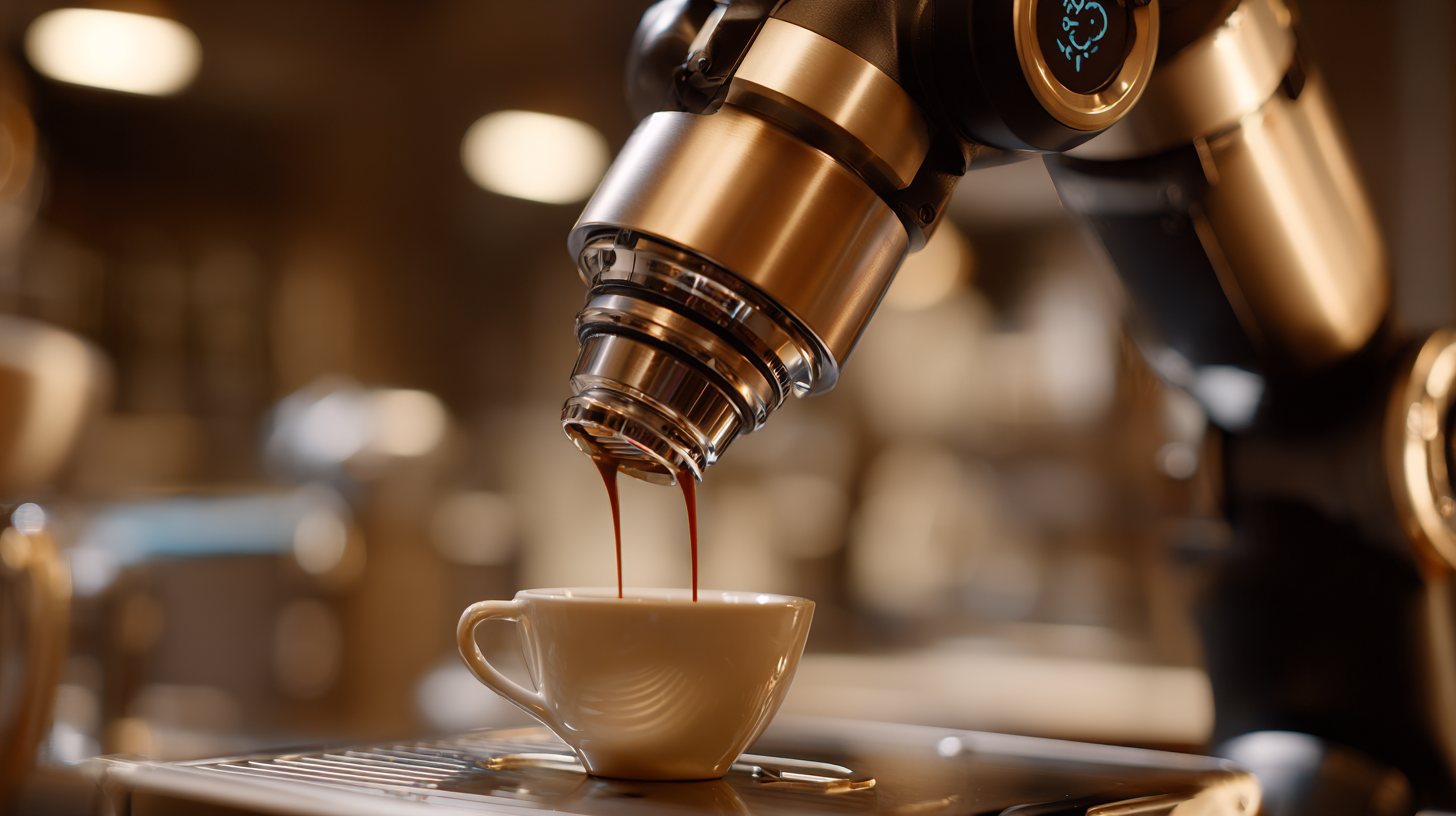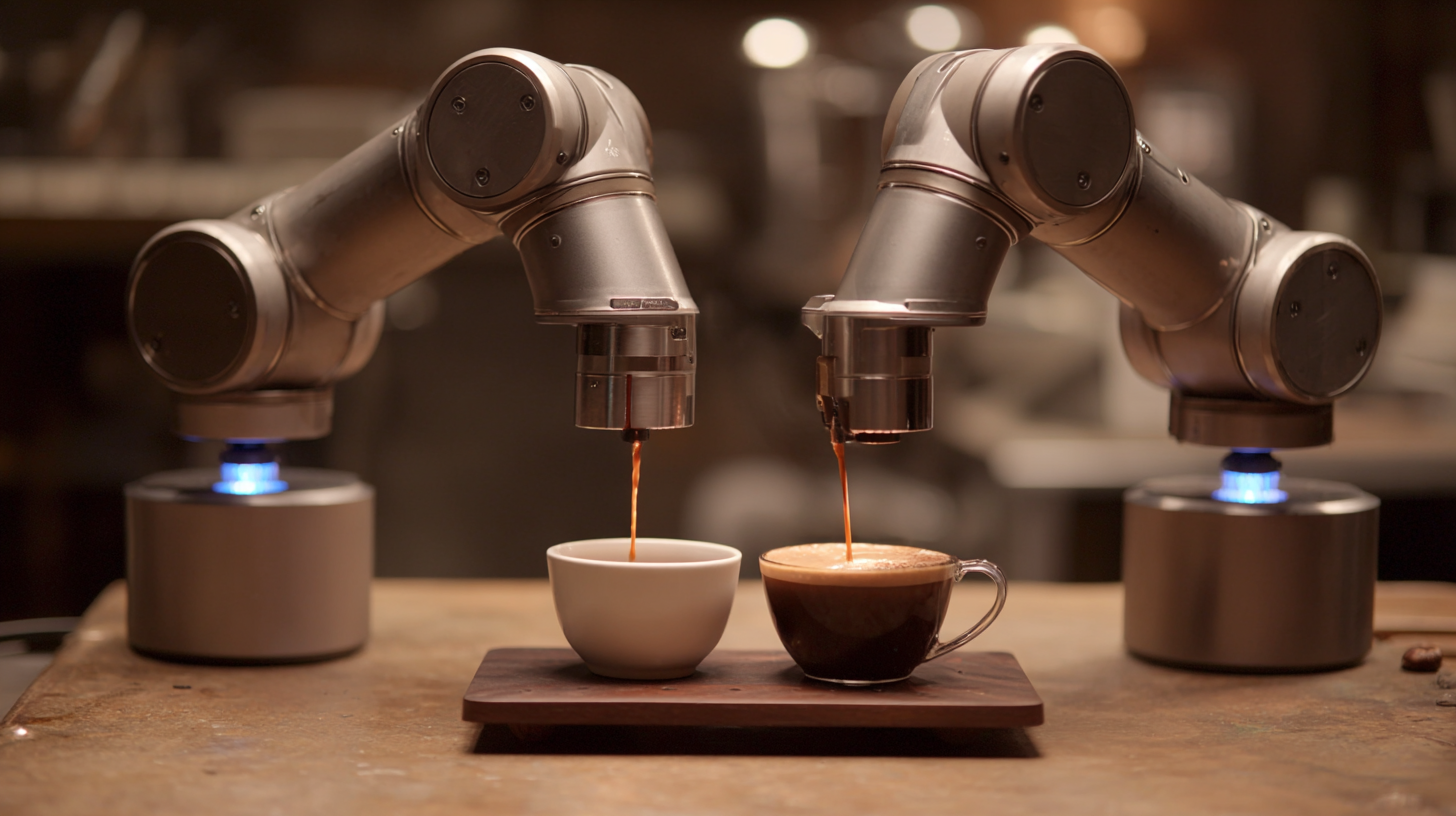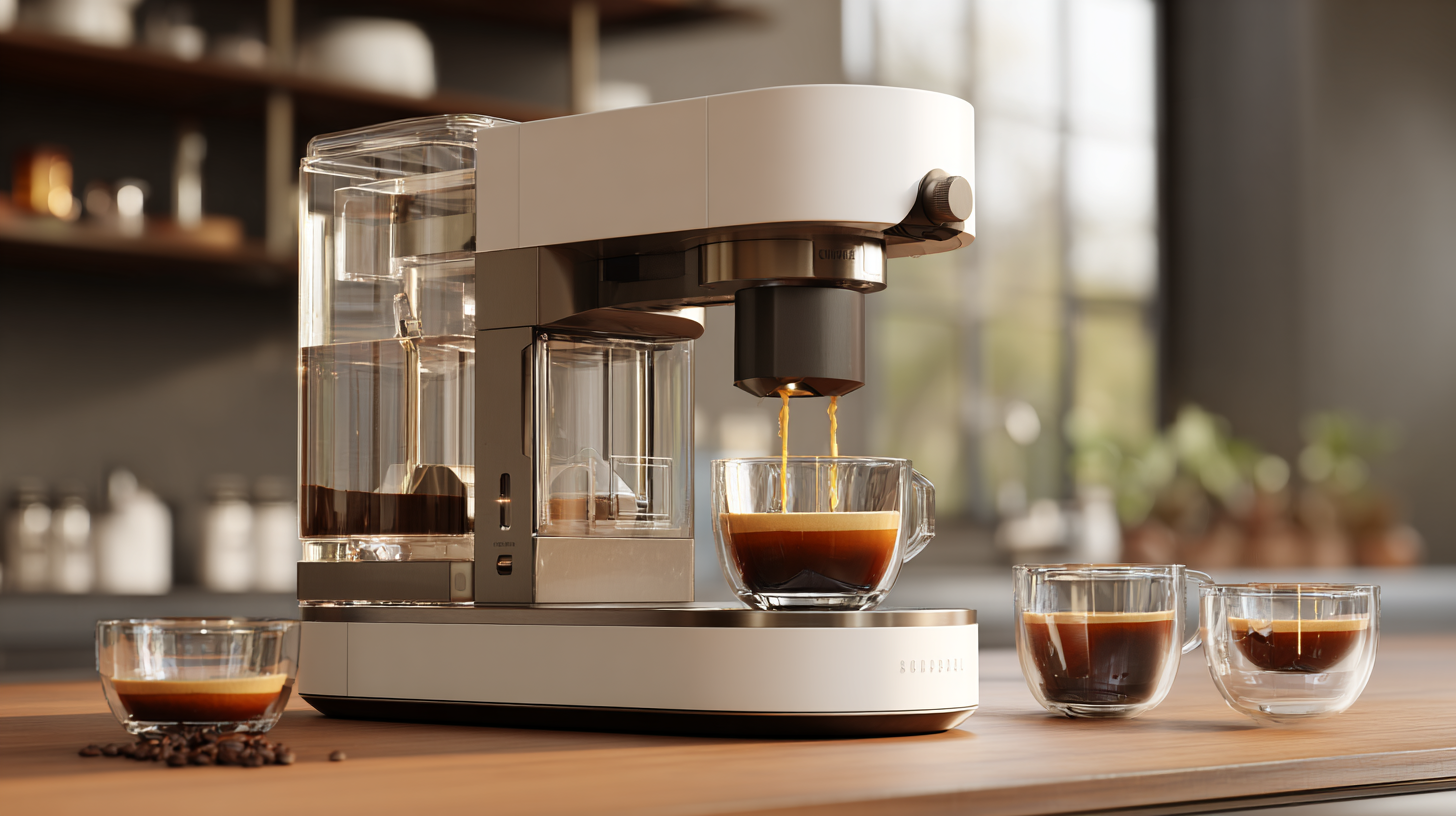Revolutionizing Your Morning Brew: How Coffee Robots are Changing the Coffee Experience
The evolution of coffee preparation is witnessing a remarkable transformation with the introduction of Coffee Robots, which are set to redefine the coffee experience for enthusiasts and casual drinkers alike. According to a recent report by Market Research Future, the global coffee machine market is projected to surpass USD 30 billion by 2025, with innovative technologies driving this growth. Coffee Robots, equipped with artificial intelligence and precision brewing techniques, boast capabilities that not only enhance the efficiency of coffee preparation but also ensure a consistent and superior flavor profile that the discerning consumer demands.

With the rising consumer trend towards personalized coffee experiences, Coffee Robots are poised to cater to diverse preferences and unique brewing methods. A study conducted by the Specialty Coffee Association revealed that 54% of coffee drinkers express a strong interest in premium experiences at home. Coffee Robots can offer meticulously crafted beverages that match specific taste profiles, engage users through interactive interfaces, and provide insights into the brewing process. As a result, these automated baristas are not just gadgets; they represent a paradigm shift in how we perceive and enjoy our morning brew, merging technology with tradition to create an unprecedented coffee culture.
The Rise of Coffee Automation: Understanding the Demand for Coffee Robots in Modern Cafés
The rise of coffee automation has significantly transformed the café experience, particularly in urban areas like Shenzhen, where technology meets coffee culture. The introduction of robots in coffee-making is not merely a gimmick; it's a response to the growing demand for efficiency and innovation in coffee service. As consumers increasingly seek unique and hassle-free experiences, robotic baristas equipped with intelligent machinery can brew quality coffee at the touch of a button, offering a glimpse into the future of the coffee industry.
Tips for trying automated coffee spots: First, experiment with different robotic creations available at these cafés to discover unique flavors and brewing methods. Second, engage with the technology; understanding how your coffee is made can deepen your appreciation for both the drink and the innovation behind it. Lastly, consider visiting during off-peak hours to enjoy a more personalized experience as you watch the robots perform their craft.
As the trend of coffee automation spreads, it also addresses labor shortages in the service industry, particularly in areas experiencing declines in human workforce participation. With robots stepping in, cafés can maintain their quality and speed of service while enhancing the overall consumer experience. This evolution not only changes how coffee is made but also how it is consumed, blending convenience with cutting-edge technology.
Rise of Coffee Automation in Modern Cafés
Innovative Technology: Key Features of Coffee Robots Transforming the Brewing Process
As the coffee culture evolves, coffee robots are at the forefront of transforming the brewing process. These innovative machines are designed to take the guesswork out of brewing, ensuring that each cup is consistent and flavorful. According to industry reports, the global coffee machine market is expected to grow at a CAGR of over 6% from 2022 to 2027, driven largely by advancements in automation technologies. Coffee robots integrate precise brewing techniques, like temperature control and extraction time, to optimize flavor extraction, making barista-quality coffee accessible to home brewers.
One of the key features of these coffee robots is their ability to connect with smartphones, allowing users to customize brewing parameters remotely. This technology not only enhances convenience but also provides coffee enthusiasts with data-driven insights into their brewing habits. A recent survey indicated that nearly 70% of consumers prefer smart appliances that enhance their daily routines, highlighting the demand for intelligent coffee solutions. With automated cleaning cycles and programmable settings, coffee robots are not just machines; they are revolutionizing the way we engage with our daily brew, making each morning experience more enjoyable and tailored to individual preferences.

Consumer Preferences: How Automated Coffee Machines Cater to Diverse Taste Profiles
As automated coffee machines gain popularity, they are revolutionizing consumer preferences in the brewing experience. According to a report by the National Coffee Association, 60% of Americans now drink coffee daily, and a significant portion of them seeks personalized brewing options. Automated systems allow consumers to customize their beverages, from choosing the grind size to the brew strength, catering to diverse taste profiles. This customization meets the rising demand for unique flavors and experiences, as 45% of coffee drinkers express a preference for craft coffee over traditional options.
Moreover, AI-driven coffee machines use algorithms to learn individual user preferences, ensuring that each cup is tailored to taste. A study from the Specialty Coffee Association found that 70% of millennials are inclined to try new technology that enhances their coffee experience, reflecting a shift toward innovation in the beverage industry. These technologies not only facilitate greater personalization but also improve consistency in flavor, fulfilling the desire for high-quality coffee at home. As the coffee industry evolves, the intersection of technology and consumer preference is reshaping how we enjoy our morning brew.
Revolutionizing Your Morning Brew: How Coffee Robots are Changing the Coffee Experience
| Feature | Consumer Preference (%) | Demographic Group |
| Customizable Brew Strength | 75% | 18-34 Years Old |
| Coffee Origin Selection | 60% | 35-50 Years Old |
| Milk Frothing Options | 68% | All Ages |
| Integrated Grinding | 55% | 25-40 Years Old |
| App Connectivity | 72% | 18-44 Years Old |
| Single Serve Convenience | 80% | All Ages |
| Flavor Infusion Options | 65% | 18-30 Years Old |
Market Trends: The Impact of Coffee Robotics on the Global Coffee Industry Revenue
The global coffee industry is undergoing a transformation, significantly driven by the emergence of coffee robotics. According to the Global Coffee Pods and Capsules Market report, this sector was valued at approximately USD 27.52 billion in 2023 and is anticipated to grow to USD 48.1 billion by 2028. As automation technology integrates more deeply into cafés and coffee service arenas, it not only enhances efficiency but also reshapes consumer experiences.
Recent trends indicate a competitive landscape as major players adapt to automated solutions. For instance, the out-of-home coffee market is projected to increase from USD 24.50 billion in 2025 to USD 41.85 billion by 2035, expanding at a compound annual growth rate (CAGR) of 5.5%. The rise of robot baristas, such as those spearheaded by leading firms, is noted as a pivotal change that caters to the modern consumer's desire for speed and quality.
With forecasted global coffee market revenues reaching approximately USD 381.52 billion by 2034, the role of coffee robotics is clearly set to redefine market dynamics and consumer expectations.
Sustainability and Efficiency: The Role of Coffee Robots in Reducing Waste and Enhancing Productivity
The advent of coffee robots is transforming the coffee industry, particularly in the realms of sustainability and efficiency. By automating brewing processes, these robots significantly minimize waste, making coffee production more environmentally friendly. Reports indicate that automating coffee preparation can reduce energy consumption by up to 30%, while robotic systems are designed to optimize ingredient usage, ensuring that every cup is made with precision and minimal excess. This parallels other industries, such as food and agriculture, where AI-driven automation is being increasingly incorporated to streamline operations and reduce environmental impact.
**Tips for Embracing Coffee Robotics:**
1. **Invest in Smart Solutions:** Look for coffee robots that integrate energy-efficient technologies to cut down on waste and operational costs.
2. **Monitor Quality:** Utilize coffee robots equipped with AI to maintain consistent quality, allowing you to focus on enhancing customer experience instead of manual oversight.
Moreover, much like advancements in biochar for wastewater treatment, coffee robotics also represents a shift toward sustainable practices within the food sector. As consumers become more conscious of their environmental footprint, the trend is likely to continue, pushing coffee businesses to adopt innovations that make every sip of their beverage not only enjoyable but also eco-friendly.



